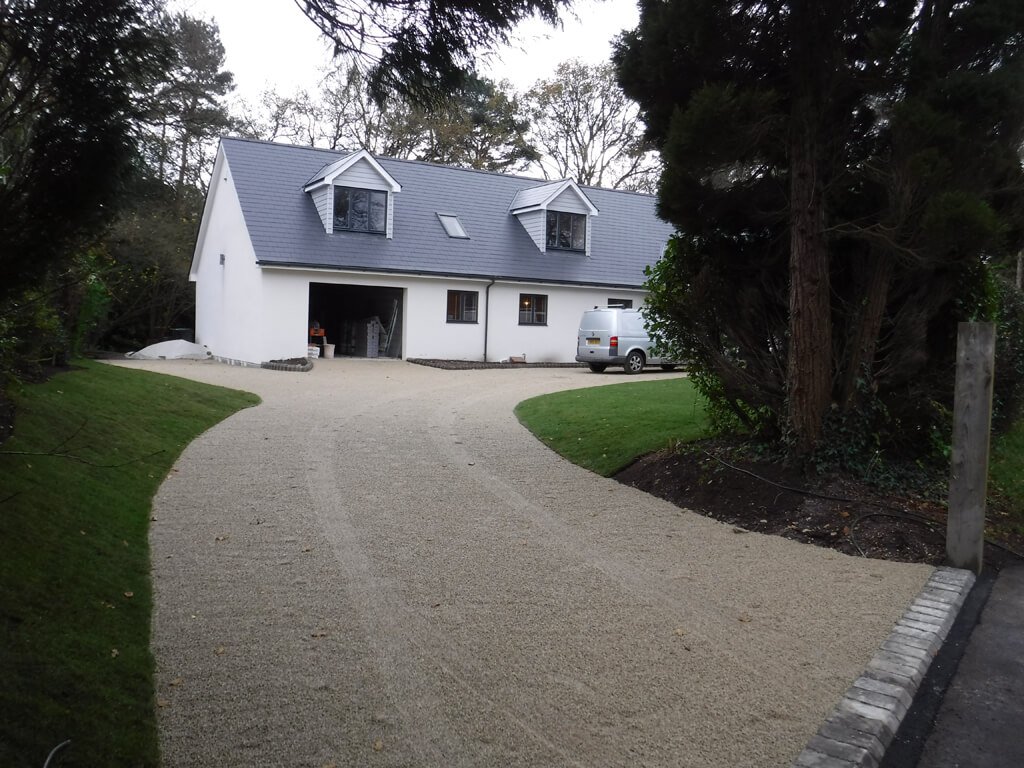Asphalt vs. Concrete: What Makes the Best Driveways in Bournemouth?

when it comes to Driveways in Bournemouth, If there’s one thing you have to pay attention to in your home’s exterior, it’s your driveway. Whether you’re constructing your home or looking for one, the one thing you have to look out for in your driveway is its material. How does it feel when you pull up? Will it last for as long as you intend to live there? These questions all depend on whether or not your driveway is asphalt or concrete. For an in-depth comparison, check out their pros and cons to decide what would work better for you.
Benefits of an Asphalt Driveway
More Affordable
Asphalt is a more cost-effective material for your driveway. It is a much softer material than concrete, which makes it less durable compared to it. However, it does have a lifespan of thirty years before it needs to be redone.
Repairs are Quicker and More Manageable
Because it is more malleable, some upkeep is needed for asphalt driveways after three to five years. But this maintenance is a lot less expensive than the maintenance of concrete driveways.
Clean Look and Finish
Asphalt covers the entire driveway with a clean and sleek surface that costs less than concrete. Aesthetically, it looks decent and gives great curb appeal. It is ideal for single residents who don’t use it often. If you don’t intend to stay for too long, asphalt is the perfect material for your driveway.
Disadvantages of Asphalt
Asphalt is not the ideal material for hot temperatures because of its malleability. I could melt into tires on hot days, which will need to be patched up right away. Compared to concrete, asphalt won’t last too long and is not ideal for families who intend to settle down in a home for an extended period.
Benefits of Concrete Driveway
More Durable
Concrete is a much stronger material that can last for over fifty years of use before needing a recoat. It is much more expensive than asphalt, but you will get more help from it in the future.
Great for Hot Weather Neighbourhoods
The sun can melt asphalt driveways, but it can’t melt rock-solid concrete. Concrete’s durability makes it a lot safer to walk around on the driveway without worrying about repairs for most of the year. However, when it gets colder, it will be prone to cracks, requiring some patchwork once it’s warm again.
Ideal for Long-Term Use
Concrete driveways are strong and can last for a long time, which is why they are considered investments to the property. If you own more than one car, have children who like to play around the driveway, and intend to stay in the house for a long time, then concrete will be ideal.
Disadvantages of Concrete
Concrete is less flexible, making it more expensive to build and maintain if it requires repairs. Unlike asphalt that takes some quick remodelling, concrete patches are more challenging, and rehabilitation costs more. If you are in a temporary living situation, it would be a waste of money to invest too much.
Conclusion
Asphalt and concrete both have their benefits and disadvantages. It all comes down to preference. For durability, concrete is the way to go. But if you don’t want to overspend, asphalt works just fine. You can always ask for a second opinion on which material to use from professional builders of Driveways in Bournemouth.
For expert work done on driveways in Bournemouth, schedule a call with Absolute Armour & Sons. We provide you with excellent building services using quality materials and craftsmanship—from commercial spaces to residential property. Transform your outdoor spaces and driveways with us today!
